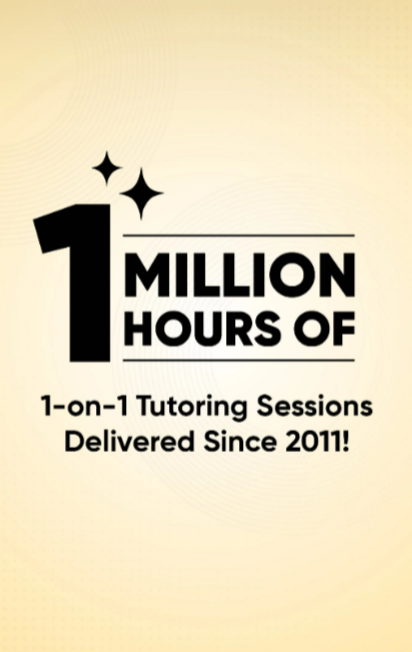Struggling with 10th grade? Here’s how parents
can support their teen’s academic journey
10th grade is a pivotal year in your child’s high school journey. Expectations increase, subjects get tougher, and the pressure to “start thinking about college” suddenly kicks in. If your teen is struggling in 10th grade, you’re not alone—and the good news is, there’s a lot you can do as a parent to help them through it.
In this post, we’ll break down why 10th grade is so challenging, how to recognize the signs that your teen needs support, and practical ways to help them get back on track—without nagging or pressure.
Why 10th grade can feel like a breaking point

According to a 2023 survey by the National Center for Education Statistics, over 64% of high school students reported that they felt “frequent stress” related to school performance. Among 10th graders, this stress is especially high due to:
- Increased workload: Coursework in core subjects like Algebra II, chemistry, and literature becomes more abstract and demanding.
- Standardized test prep: Students may start preparing for the PSAT, SAT, or ACT as early as 10th grade.
- College and future planning: This is when many students start thinking about college options, careers, and building a “resume” of extracurriculars.
- Social and emotional development: Teens at this stage are navigating friendships, identity, independence, and even part-time jobs—all while managing academic pressure.
This mix of academic and emotional change makes 10th grade a common turning point—for better or worse.
Common signs your 10th grader might be struggling with studies
Every teen is different, but here are some common red flags that your child might need help:
- A noticeable drop in grades or test scores
- Avoiding homework or studying altogether
- Saying “I don’t get it” often—especially in math or science
- Complaints of headaches, trouble sleeping, or fatigue
- Becoming more irritable, withdrawn, or anxious when talking about school
- 6. Procrastinating or missing deadlines
It’s important to recognize that struggling doesn't always look like failing. A student who’s always been a high achiever might still be dealing with burnout, anxiety, or quiet confusion.
What subjects cause the most stress in students of 10th grade?
Based on data from the National Education Association, high school students report the most difficulty in:
- Mathematics (Algebra II, Geometry, Pre-Calc): These subjects require abstract reasoning and cumulative skills—missing one concept can derail everything.
- Sciences (Biology, Chemistry): Understanding complex systems and memorizing dense content can be overwhelming without enough support.
- English and writing: Expectations rise sharply in 10th grade for structured essays, critical analysis, and reading comprehension.
The stress often isn’t just about the subject—it’s the pace and the volume of assignments. Many students fall behind simply because they don’t have time to process new concepts before the class moves on.
A parent’s role in supporting their children: support without pressure
It’s easy to default to, “You just need to study harder,” but that rarely works. What teens need is structure, encouragement, and tools to work smarter—not just harder.
Here are practical ways you can help:
- 1. Create a no-stress homework routine
- 2. Break down big assignments
- 3. Address time management directly
- 4. Reduce distractions
- 5. Focus on sleep and energy
Instead of asking, “Did you finish your homework?” try asking, “What subject feels the hardest today?” It opens the door to real conversations and shows you're there to help—not just monitor.
Encourage them to study at a consistent time every day, even if it’s just 30–45 minutes. Consistency matters more than intensity.
Many 10th graders procrastinate because they don’t know how to start. Help them break big tasks into smaller, more manageable chunks. For example, a five-paragraph essay can be tackled over three days: brainstorm on day one, write the draft on day two, edit on day three.
Only 23% of high schoolers in a recent Common Sense Media report said they felt “in control of their time.” This lack of structure leads to last-minute cramming and unnecessary stress.
Teach them to use planners (digital or paper), create to-do lists, and set mini-deadlines. You can even model these habits in your own daily life.
Phones, social media, and gaming are top productivity killers. Instead of banning them, work with your teen to create limits. For instance, try the “30/10” rule: 30 minutes of work, 10 minutes of break.
You can also try phone apps that block social media during study time—many teens actually appreciate having the distraction removed once the decision is out of their hands.
Teens need 8–10 hours of sleep to function well, yet most 10th graders get less than 7. Poor sleep is directly linked to trouble concentrating, memory loss, and low mood.
Make sure they’re not staying up too late doing homework—or worse, scrolling in bed. A consistent sleep routine is more powerful than any tutoring session.
What to do if you still see your teen slipping in studies
If you’ve put basic routines in place and your child is still overwhelmed, they may need extra academic support. That doesn’t mean they’re falling behind—it just means they need more personal attention than a classroom can provide.
Support can come in many forms:
- 1. A friend who’s strong in the subject and can explain concepts informally
- 2. Ask if they have experience with your child’s gradOnline learning videos that match their school curriculum
- 3. A parent’s quick refresh of the topic (if you feel confident)
- 4. Or structured support from a qualified tutor
The key is that the help is consistent and responsive to how your teen learns best—not just more of the same lectures they’re already hearing at school.
It’s not about pushing harder—it’s about helping smarter
10th grade is tough. But it’s also an opportunity. Students who learn how to manage their time, ask for help, and stay consistent during this year often find the rest of high school easier.
As a parent, your role isn’t to solve every problem or hover over every homework assignment. It’s to provide structure, emotional safety, and options. Your teen may resist at first—but with consistency and patience, things can turn around faster than you think.
If you're looking for academic support that's tailored to your child's needs, make sure it’s aligned with their school goals, fits your family’s schedule, and gives your teen a chance to regain their confidence—not just improve a grade.

 United States
United States United Kingdom
United Kingdom Australia
Australia Canada
Canada Middle East
Middle East Europe
Europe